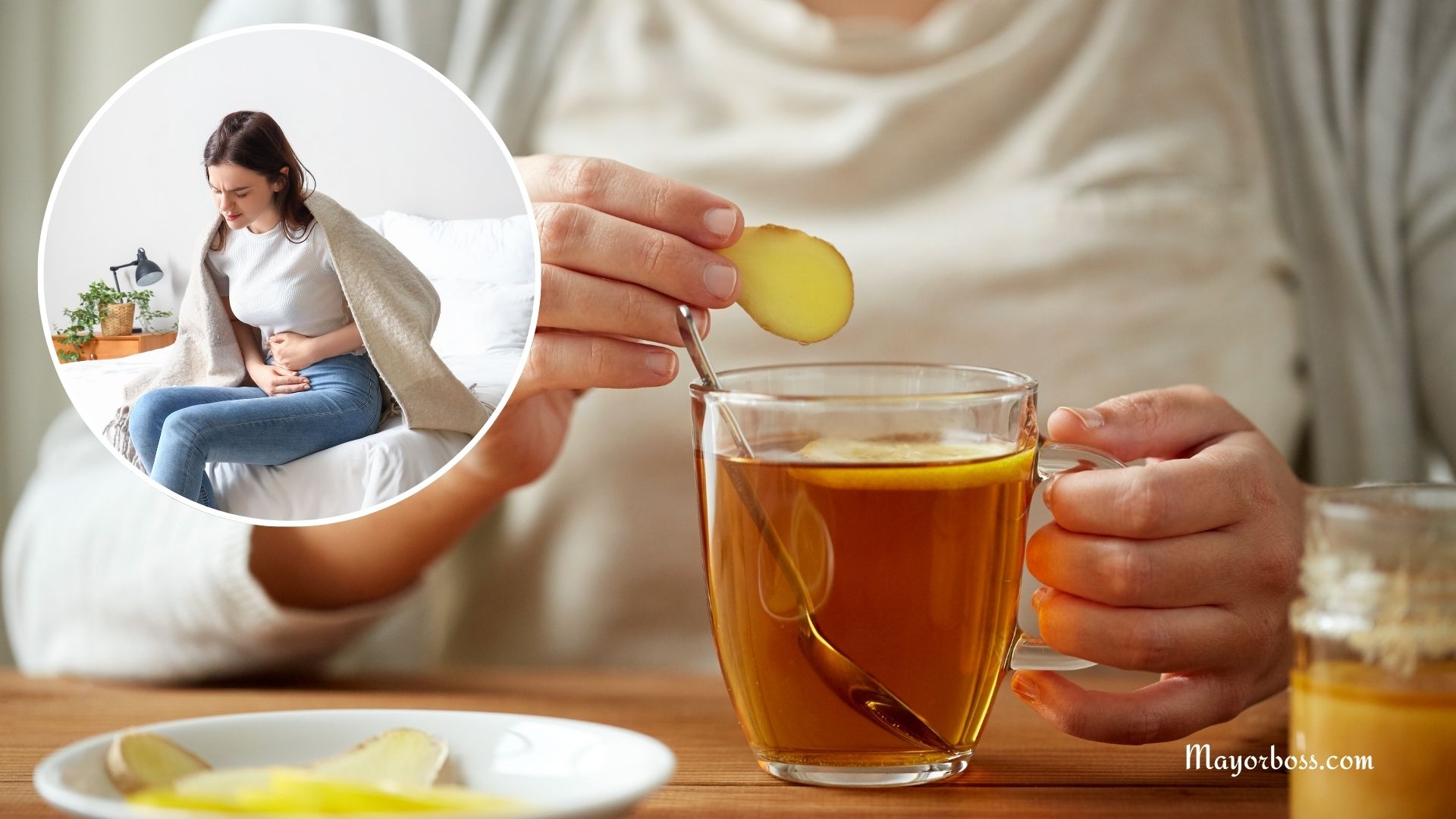9 Teas That Help Relieve Period Cramps
Period cramps can be tough. They often come with aching pain, nausea, and fatigue. Over-the-counter pain relievers help, but you might also look for natural methods to ease discomfort. One popular remedy is tea. Certain herbal teas, like Hibiscus, peppermint, chamomile, and ginger tea, contain naturally analgesic, anti-inflammatory, and antispasmodic properties that can help soothe muscles and ease menstrual cramps and pain.

1. Chamomile Tea
Chamomile is widely known for its soothing effect. It contains compounds like apigenin, which may help calm the nervous system. This calming effect doesn’t just make you feel relaxed—it might also help relieve muscle spasms. As studies show, when your uterus contracts, chamomile tea could lessen the intensity, helping you feel more at ease. Plus, warm chamomile tea can help you decompress, especially when you’re dealing with mood swings or irritability.
2. Ginger Tea
If you’ve ever had an upset stomach, you know ginger can be helpful. For period cramps, ginger’s anti-inflammatory properties help reduce prostaglandin levels. Prostaglandins are chemicals that make your uterus cramp up during menstruation. Lowering these chemicals can mean less pain. Some studies even suggest ginger also helps settle your stomach if you experience bloating or nausea during your period.
3. Peppermint Tea
Peppermint tea has been linked to reduced period pain. It’s rich in menthol, which can relax smooth muscle tissue. For many women, the uterus cramps are partly due to muscle contractions. Menthol may help loosen them, possibly reducing pain. Also, peppermint tea can soothe an upset stomach and lessen any bloating or gas you might get around your period. Drinking a warm cup of peppermint tea can also clear your sinuses, helping you feel more comfortable overall.
4. Fennel Tea
Fennel seeds have a distinctive flavor—slightly sweet, with a hint of anise. These seeds contain anethole, which may act like estrogen in the body. Because estrogen levels fluctuate during your menstrual cycle, fennel might help balance these ups and downs. Some studies suggest fennel can reduce cramps and shorten the duration of menstrual pain. It also has a mild diuretic effect, so if you deal with water retention, fennel tea might offer a gentle relief.
5. Raspberry Leaf Tea
Raspberry leaf tea is well-known in women’s health circles. It has fragarine, a compound that may help tone and relax uterine muscles. This tea doesn’t taste like raspberries; it has a more earthy, herbal flavor. Raspberry leaf tea is sometimes recommended by midwives, but it can be used by anyone looking to ease period cramps. Because it helps with muscle relaxation, it could shorten the intensity of uterine contractions and reduce cramping.
6. Cinnamon Tea
Cinnamon is also a useful herbal remedy. Studies suggest cinnamon may significantly lessen menstrual bleeding and reduce pain intensity. It acts as an anti-inflammatory agent, which can lower the levels of pain-causing molecules in your body. Cinnamon tea can be made from cinnamon sticks or ground cinnamon. If you like a sweeter taste without adding sugar, choose cinnamon sticks for a milder flavor. As a bonus, cinnamon tea might also help stabilize blood sugar, which can play a part in balancing mood swings.
7. Green Tea
Numerous trials and studies show that green tea is packed with antioxidants, especially catechins. These antioxidants can help reduce inflammation that comes with menstruation. Green tea also contains a bit of caffeine. For some women, a small caffeine boost can fight fatigue and headaches that often accompany cramps. However, if you’re sensitive to caffeine, limit your intake. Keep in mind that excessive caffeine might worsen anxiety or cause digestive discomfort, so enjoy green tea in moderation.
8. Fenugreek Tea
Fenugreek seeds contain phytoestrogens, which may help modulate hormonal imbalances during menstruation. Some research suggests fenugreek can reduce the severity of period pain by calming uterine contractions. The seeds have a slightly bitter taste, but many people sweeten fenugreek tea with a touch of honey. If you enjoy trying new flavors, fenugreek tea could be an effective addition to your cramp relief toolkit.
9. Hibiscus Tea
Hibiscus tea stands out for its vibrant pinkish-red color. It has a tart flavor and is often enjoyed both hot and cold. Hibiscus is known for its potential to help regulate hormones, which might reduce cramps if hormonal fluctuations are a trigger. It’s also thought to aid digestion, helping with bloating that can accompany your period. Drink hibiscus tea in moderation if you have low blood pressure, as it might make your blood pressure dip a little lower.
Tips for Safe Use
While teas are generally safe, talk with your healthcare provider if you have specific medical conditions or if you’re taking medication. Some teas interact with drugs, alter blood pressure, or affect blood sugar. Also, if you suspect you’re pregnant, consult your doctor before using herbal teas, as certain herbs may not be advisable during pregnancy.
